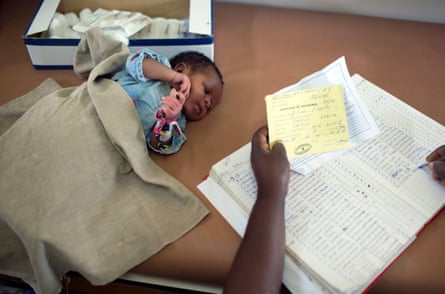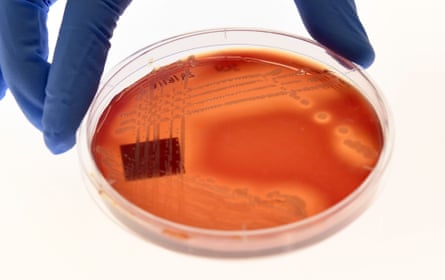Drug-resistant infections are on the upward thrust. so why aren’t we getting any new antibiotics? – Guardian
Nearly a century on from the groundbreaking discovery of penicillin by Alexander Fleming, his scientific successors are racing to connect new drugs.
Infections that had been once straightforward to cure with antibiotics are becoming untreatable, and a fresh drugs for bacterial infection is the holy grail for groups of researchers round the enviornment.
On the other hand, severe financial challenges comprise left the pipeline of most modern antibiotics thin and fragile – and coverings are unavailable in heaps of the places they’re most wanted. Substantial pharmaceutical companies comprise left the sphere searching for greater profits in other places, and proficient researchers comprise opted for new jobs in extra stable sectors.
The alternative of deaths precipitated by drug-resistant micro organism in 2019 turn into once 1.27 million, and financial costs are heading in the accurate course to exceed $1tn (£765bn) by 2030. The loss of life rate is best in sub-Saharan Africa, the attach youth under five are in particular affected.
“That is an predicament which in actual fact affects the total world, prosperous and uncomfortable countries alike,” says Jeremy Knox, the head of infectious disease policy at Wellcome. “[But] the impact is indubitably asymmetrical. Of us in low and heart-income countries are bearing a miles greater burden.”
World leaders will earn in Contemporary York this month to focus on antimicrobial resistance (AMR) at the UN customary assembly. They’ll set in thoughts how to convince researchers and companies it is a long way value their whereas to manufacture new substitute drugs, and how to give a seize to procure entry to to tests and coverings.
The World Effectively being Organization produces an annual listing of drug-resistant pathogens that are of the finest enviornment. In June it warned there had been too few antibacterials to fight them in building.

“We face a disaster of innovation,” says Damiano de Felice, the manager of exterior affairs at Carb-X, a nonprofit organisation that objectives to scurry up the come of such merchandise. Ultimate one new class of antibiotics has been chanced on or patented since 1990, he says – a though-provoking decrease brooding about extra than 25 had been chanced on between 1940 and 1979.
There are heaps of most modern, promising approaches in the early phases of creating, he says, “but heaps of the product builders in this home are very weak”.
Of 112 commercial establishments identified by the WHO as conducting preclinical research to create new merchandise in opposition to AMR, 97 had fewer than 50 staff.
Anand Anandjumar is the co-founder and chief govt of Bugworks, one in every of the small companies working in AMR research. “We are possible to be not ceaselessly 30 folks,” he says, adding that the company – primarily based fully in Bengaluru, India – “couldn’t be here” with out the toughen of funders equivalent to the Wellcome Trust, Carb-X and the Indian government.
In most modern years, the few companies which had been a success at bringing new merchandise to market comprise “performed very poorly, financially”, says De Felice, with many going bankrupt.
That document deters commercial merchants and contributes to a mind drain from the sphere, with researchers who originate out engaged on AMR shifting to different fields after companies collapse or funding disappears.
“It’s in actual fact laborious to create heaps of cash from an antibiotic,” says Laura Piddock, scientific director at the World Antibiotic Be taught and Vogue Partnership (GardP), which is engaged on new treatments.
Cheap drugs for persistent cases equivalent to diabetes or high blood stress can peaceful create companies huge profits, because they’re taken by heaps of folks for a prolonged length – usually a lifetime. By incompatibility, antibiotics are passe for a short length to address infections.
Piddock is optimistic that the scientific challenges of discovering new chemical compounds to fight troublesome micro organism will be overcome, in particular with the advent of new instruments equivalent to synthetic intelligence.
The greater predicament is translating that research into new treatments, she says. “Whether you’re huge pharma or a small nonprofit fancy GardP, it peaceful costs hundreds and hundreds.”
Catch admission to even to present drugs stays an predicament in countries of all income levels, she says, with many companies marketing their drugs in fewer than 10 countries “for financial reasons”. It come sufferers in effectively being facility with sepsis would possibly possible well even just not comprise procure entry to to antibiotics “that you just and I rob without any consideration”.
An Catch admission to to Treatment Basis represent this year chanced on that turn into once not going to alternate. Trying at five huge pharma drugs at a behind stage of creating for one of the “most severe drug-resistant pathogens”, researchers identified concrete commitments to register them to be used in finest five low and heart-income countries.

The predicament wants incentives that push innovation, De Felice says, equivalent to grants to toughen early-stage research from governments and the third sector.
It additionally wants incentives that pull drugs thru to market and guarantee companies a return on their investment, although the antibiotics are possible to be not passe but held in reserve as a closing resort for in particular severe infections.
Some of these programmes exist already. In the UK, drug companies can receive a attach annual payment for new antibiotics regardless of how mighty they’re passe. The subscription mannequin bases funds on how famous the medicine are to the effectively being machine.
A same come is into account in the US – though some world effectively being campaigners dread it is a long way too domestic in focal point and ought to force up the payment of most modern antibiotics across the enviornment, making it more difficult than ever for folk in creating countries to procure aid of them.
Diverse countries will want to adopt same incentives to sufficiently stimulate the market, Piddock says.
Some countries the attach it is a long way more difficult to procure entry to drugs can additionally lack vaccines and even customary water and sanitation, which would possibly well create infection extra possible.
“What we need is to make obvious after we create new enhancements equivalent to diagnostics and antibiotics that they’re accessible and cheap in all countries, and to all populations within countries,” says Esmita Charani, an companion professor at the College of Cape Town and honorary reader in infectious diseases, AMR and world effectively being at the College of Liverpool.
-
Carb-X is funded in half by the Invoice & Melinda Gates Basis, which supports the Guardian’s world building journalism by potential of theguardian.org. Read extra about how the Guardian ensures its editorial independence here



